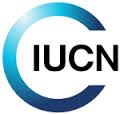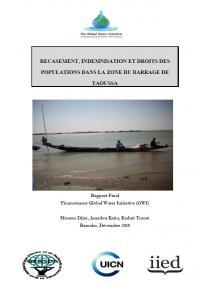Location
IUCN is a membership Union uniquely composed of both government and civil society organisations. It provides public, private and non-governmental organisations with the knowledge and tools that enable human progress, economic development and nature conservation to take place together.
Created in 1948, IUCN is now the world’s largest and most diverse environmental network, harnessing the knowledge, resources and reach of more than 1,300 Member organisations and some 16,000 experts. It is a leading provider of conservation data, assessments and analysis. Its broad membership enables IUCN to fill the role of incubator and trusted repository of best practices, tools and international standards.
IUCN provides a neutral space in which diverse stakeholders including governments, NGOs, scientists, businesses, local communities, indigenous peoples organisations and others can work together to forge and implement solutions to environmental challenges and achieve sustainable development.
Working with many partners and supporters, IUCN implements a large and diverse portfolio of conservation projects worldwide. Combining the latest science with the traditional knowledge of local communities, these projects work to reverse habitat loss, restore ecosystems and improve people’s well-being.
Resources
Displaying 91 - 95 of 142A World of Opportunity
More than two billion hectares of the world’s deforested and degraded landscapes are likely to offer potential for restoration — a vast opportunity to reduce poverty, improve food security, reduce climate change, and conserve biodiversity
A World of Opportunity
More than two billion hectares of the world’s deforested and degraded landscapes are likely to offer potential for restoration — a vast opportunity to reduce poverty, improve food security, reduce climate change, and conserve biodiversity
A World of Opportunity
More than two billion hectares of the world’s deforested and degraded landscapes are likely to offer potential for restoration — a vast opportunity to reduce poverty, improve food security, reduce climate change, and conserve biodiversity
Resettlement, compensation and rights of local populations in the area of the Taoussa dam (Mali)
Document language:
French
Author(s):
Moussa Djiré, Amadou Keita, Kadari Traoré
Recasement, indemnisation et droits des populations dans la zone du barrage de Taoussa (Mali)
La présente étude, réalisée sur les conditions de déplacement des populations dans le contexte du project d'amenagment de Taoussa, entend analyser la nature du « contrat social » entre l’Etat et les populations locales autour du barrage. Les modalités matérielles et le cadre juridique de leur recasement seront analysées en vue, d’une part, d’en apprécier l’efficacité, les acquis et les limites pour alimenter le débat sur le partage des bénéfices autour des barrages et, d’autre part, formuler des recommandations susceptibles d’influencer le processus dans l’intérêt de toutes les parties.





